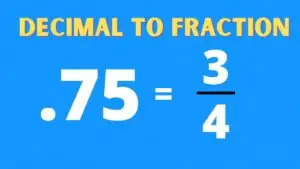In the realm of mathematics, conjectures play a pivotal role in guiding research and shaping our understanding of various mathematical structures and patterns. A conjecture is essentially a mathematical statement believed to be true based on observations, yet it remains unproved. These conjectures often serve as the launching pad for deeper exploration and problem-solving in mathematics.

✅ AI Essay Writer ✅ AI Detector ✅ Plagchecker ✅ Paraphraser
✅ Summarizer ✅ Citation Generator
The Nature of Conjectures
Conjectures arise from observing patterns or structures within mathematical systems. They are the initial steps towards developing new theorems and are integral to the process of mathematical discovery. Unlike theorems, which are rigorously proved and accepted as true, conjectures remain in a state of theoretical limbo until proven.
Patterns and Observations
The development of a conjecture often begins with the recognition of a pattern or structure within a mathematical framework. Mathematicians analyze these patterns, developing conjectures as potential explanations or generalizations of these observations.
The Journey from Conjecture to Theorem
For a conjecture to become a theorem, it must be rigorously proved through mathematical logic and reasoning. This journey from conjecture to theorem is a critical part of the mathematical process, involving extensive analysis, problem-solving, and often, the development of new mathematical methods.
Famous Conjectures in Mathematics
Throughout history, numerous conjectures have challenged and inspired mathematicians. Some of these conjectures have been proven and are now accepted as theorems, while others still remain unproven, continuing to ignite the curiosity of mathematical minds.
Proven Conjectures
Some conjectures have been successfully proven, transforming into theorems. These cases provide valuable insights into the mathematical structures they describe, enriching our understanding of mathematics.
Unproven Conjectures
On the other hand, unproven conjectures represent some of the greatest challenges in mathematics. They often become focal points of research, pushing the boundaries of mathematical knowledge as attempts are made to either prove or disprove them.
The Role of Conjectures in Problem Solving
Conjectures are more than just mathematical statements; they are vital tools in problem-solving. They guide the direction of mathematical research and help in structuring the approach to complex problems.
In attempting to prove or disprove conjectures, mathematicians often need to develop new mathematical methods and approaches. This process not only advances the specific area of study related to the conjecture but also enriches the broader field of mathematics.
Conjectures also play a crucial role in analyzing and understanding the deeper structures of mathematical problems. They help in breaking down complex problems into more manageable components, providing a clearer path towards finding a solution.
The Impact of Conjectures on Mathematical Thought
The influence of conjectures on mathematical thought cannot be overstated. They are fundamental in shaping the way mathematicians approach problems, develop new theories, and understand the mathematical world.
Conjectures inspire mathematicians to explore unknown territories in mathematics, often leading to unexpected discoveries and new theories. As conjectures are proved or disproved, they significantly contribute to the evolution of mathematical theories. They often lead to a deeper understanding of existing theories or the development of entirely new ones.
Conclusion
Conjectures are the seedlings of mathematical thought, germinating ideas and hypotheses that lead to deeper exploration and understanding. They represent the curious and inquisitive nature of mathematics, constantly challenging and expanding our knowledge. Whether proven or unproven, conjectures continue to be a driving force in the advancement of mathematical science, inspiring generations of mathematicians to delve into the intriguing world of numbers, patterns, and structures.
FAQ
Follow us on Reddit for more insights and updates.





Comments (0)
Welcome to A*Help comments!
We’re all about debate and discussion at A*Help.
We value the diverse opinions of users, so you may find points of view that you don’t agree with. And that’s cool. However, there are certain things we’re not OK with: attempts to manipulate our data in any way, for example, or the posting of discriminative, offensive, hateful, or disparaging material.